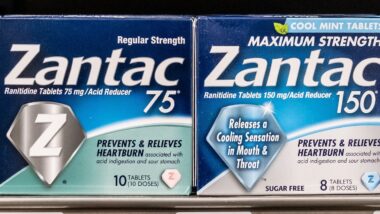 In a recent development in the vaginal mesh litigation movement, a West Virginia federal judge is sticking to his decision to consolidate 37 vaginal mesh lawsuits, each of which are filed against Ethicon and its parent company Johnson & Johnson.
In a recent development in the vaginal mesh litigation movement, a West Virginia federal judge is sticking to his decision to consolidate 37 vaginal mesh lawsuits, each of which are filed against Ethicon and its parent company Johnson & Johnson.
U.S. District Judge Joseph Goodwin is overseeing several multidistrict litigation movements against different manufacturers of vaginal mesh products, including Ethicon.
Judge Goodwin explained that he came to the decision to consolidate these vaginal mesh lawsuits, after reviewing the similar nature of the allegations and the number of specific facts that were exhibited in different lawsuits.
These vaginal mesh lawsuits are being consolidated for a single trial, alleging that the defendant’s surgical mesh products are defective and unreasonably dangerous, with the judge calling Ethicon’s defense tactics “useless relics”.
According to court documents, Ethicon presented defense arguments against consolidation, citing that vaginal mesh litigation falls under “comment k”. This policy essentially states that all medical products are unavoidably unsafe to some degree, though not unreasonably dangerous.
Judge Goodman bluntly responded that this old policy is almost invalid in the state of West Virginia, and that there is no reason to apply this policy because its principles have become a part of state law.
Ethicon Vaginal Mesh Lawsuit Consolidation
Previously in June 2015, Judge Goodwin had consolidated 26 of the 23,000 vaginal mesh lawsuits filed against Ethicon for trial; this number later was raised to 37. Each of the consolidated lawsuits were filed by West Virginia plaintiffs, who had undergone surgery to have the defendant’s TVT mesh device implanted.
Judge Goodwin explained that due to the fact that each of the surgeries had been performed in West Virginia, the vaginal mesh lawsuits were subject to the state’s relevant laws. The confusion had caused both the defense and plaintiff parties to file motions of clarification on the consolidation.
In Judge Goodwin’s memorandum that was recently released, he further explained the clarity of comment K and the trial set for December 2015.
He explained that the vaginal mesh lawsuits will be constricted to arguments between the problems being caused by a design defect or if Ethicon had acted negligently in improperly addressing possible mesh complications.
Allegations of liability and causation will be reserved for the second phase of the trials.
Before Judge Goodwin officially consolidated these vaginal mesh lawsuits, Ethicon had argued against the motion, stating that the consolidated trial would preclude the company from bringing evidence of product warnings, which could have been possibly relevant to comment K.
Essentially, Ethicon tried to argue that their vaginal mesh product could not be consider unreasonably dangerous, as long as the defense could prove that the warning labels included mesh complications. These injuries included: mesh erosion, mesh tearing, infection, debilitating mesh pain, and device failure.
Judge Goodwin conducted an extensive analysis of comment K, stating that its purpose was to create an exception to companies being responsible for defective product, as long as those companies provided reasonable warnings.
However, the judge also pointed out that product liability has since evolved since the creation of comment K in the 1960s, as most states have adopted policies of testing the utility of the product against potential risks, which makes comment K redundant.
The judge also denied another argument from Ethicon, which stated that the court would need to collect plaintiff-specific evidence to determine if the design of the product was safe. The defendant argued that West Virginia does not require such a process, as plaintiff-specific information is not required to develop or defend against evidence of any possible safer alternative designs.
Overall, Judge Goodwin ruled to consolidate the 37 Ethicon vaginal mesh lawsuits. Consolidating similar lawsuits reduces the amount of litigation resources needed, reduces the chances of duplicate discovery, avoid conflicting rulings from different judges, and to further serve to the convenience of the products.
The Ethicon Vaginal Mesh MDL is In Re: Ethicon Inc. Pelvic Repair System Products Liability Litigation, Case No. 2:12-md-02327, in the U.S. District Court of Southern West Virginia.
Do YOU have a legal claim? Fill out the form on this page now for a free, immediate, and confidential case evaluation. The vaginal mesh attorneys who work with Top Class Actions will contact you if you qualify to let you know if an individual lawsuit or class action lawsuit is best for you. [In general, vaginal mesh lawsuits are filed individually by each plaintiff and are not class actions.] Hurry — statutes of limitations may apply.
ATTORNEY ADVERTISING
Top Class Actions is a Proud Member of the American Bar Association
LEGAL INFORMATION IS NOT LEGAL ADVICE
Top Class Actions Legal Statement
©2008 – 2026 Top Class Actions® LLC
Various Trademarks held by their respective owners
This website is not intended for viewing or usage by European Union citizens.
Get Help – It’s Free
Join a Free Transvaginal Mesh Class Action Lawsuit Investigation
If you or a loved one were injured by a transvaginal mesh product and underwent revision surgery to remove the mesh or repair the damage, you may have a legal claim. Submit your information now for a free case evaluation.
An attorney will contact you if you qualify to discuss the details of your potential case at no charge to you.












